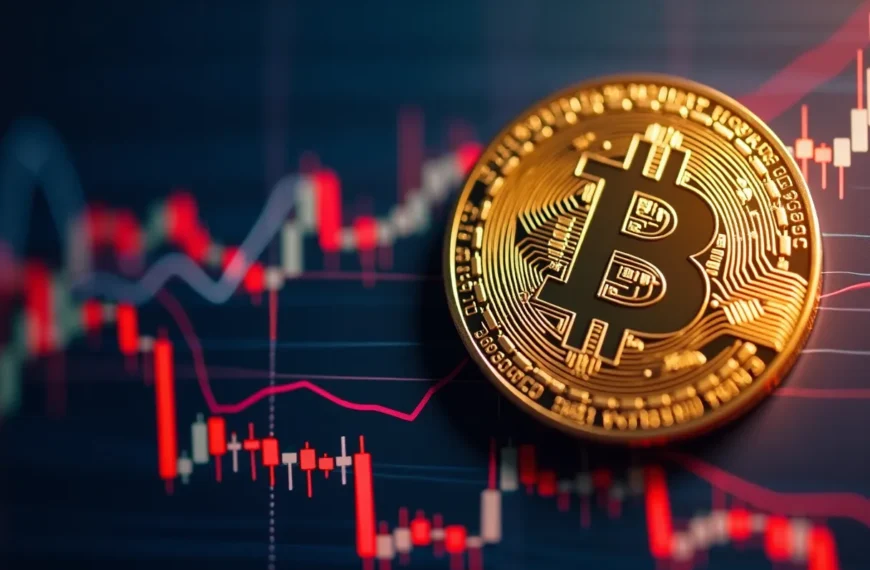Understanding Trump’s Tariffs and Their Potential Impact on Bitcoin Prices
As the global economy evolves, various factors can influence cryptocurrency markets, and one such factor is government policy. Recently, former President Donald Trump’s tariffs on imports have raised questions about their potential effects on Bitcoin prices. In this article, we will delve into the relationship between these tariffs and the cryptocurrency market, exploring how economic policies can ripple through to affect digital assets like Bitcoin.
What Are Trump’s Tariffs?
Trump’s tariffs primarily focused on imposing taxes on imported goods, particularly from countries like China. The rationale behind these tariffs was to protect American manufacturers and encourage domestic production. However, tariffs have broader implications that extend beyond traditional markets and can affect the cryptocurrency landscape in several ways.
Economic Uncertainty and Its Effect on Bitcoin
One of the most significant impacts of tariffs is the economic uncertainty they create. When businesses face increased costs due to tariffs, they may pass those costs onto consumers, leading to inflation. This uncertainty can push investors toward alternative assets like Bitcoin, which is often seen as a hedge against inflation and economic instability.
Key Points to Consider:
- Inflation Hedge: Bitcoin is frequently referred to as “digital gold” due to its limited supply and potential to retain value during inflationary periods.
- Risk Appetite: Investors may turn to Bitcoin when traditional markets are volatile, viewing it as a safe haven asset.
Impact on Mining Operations
The tariffs could also influence Bitcoin mining operations, as they often rely on imported equipment and materials. Increased costs due to tariffs may lead to higher operational expenses for miners.
Potential Outcomes:
- Increased Costs: Miners may face higher prices for hardware, which can reduce profit margins.
- Mining Consolidation: Smaller mining operations might struggle to stay afloat, leading to consolidation in the industry.
As mining becomes less profitable due to rising costs, the overall supply of new Bitcoin entering the market could decrease. This reduction in supply, paired with sustained or increased demand, could put upward pressure on Bitcoin prices.
Consumer Sentiment and Adoption
Tariffs and trade wars can also affect consumer sentiment. When consumers are concerned about the economy, they may be more likely to explore alternative investment options, including cryptocurrencies.
Factors Influencing Consumer Behavior:
- Lower Disposable Income: If consumer prices increase due to tariffs, individuals may have less disposable income to invest in cryptocurrencies.
- Increased Interest in Alternatives: Economic uncertainty may drive consumers to seek out alternative investment opportunities, such as Bitcoin.
The Global Context
In a globalized economy, the impact of U.S. tariffs extends beyond American borders. Countries affected by these tariffs may respond with their own trade policies, leading to a ripple effect in global markets. This interconnectedness can influence Bitcoin’s price as well.
Global Factors to Monitor:
- International Responses: Countries may retaliate against U.S. tariffs, leading to trade wars that disrupt global supply chains.
- Global Economic Health: Economic slowdowns in other nations can impact investor confidence in traditional assets, resulting in increased interest in cryptocurrencies.
The Role of Institutional Investors
Institutional investment in Bitcoin has surged in recent years, with major companies and investment firms allocating funds to cryptocurrencies. Tariffs and the resulting economic conditions could influence institutional strategies as well.
Considerations for Institutional Investors:
- Portfolio Diversification: Institutions may look to Bitcoin as a means of diversifying their portfolios amidst economic volatility caused by tariffs.
- Long-Term Outlook: With a view toward long-term gains, institutional investors may see Bitcoin as a valuable asset during uncertain economic times.
Conclusion: Navigating the Future of Bitcoin Amidst Tariffs
In conclusion, while Trump’s tariffs are primarily aimed at traditional markets, their implications can extend into the cryptocurrency realm. The economic uncertainty created by tariffs may drive investors toward Bitcoin as a hedge against inflation and volatility. Additionally, the potential impact on mining operations and consumer sentiment can further shape the cryptocurrency landscape.
As the situation evolves, it is essential for investors to stay informed about economic policies and their potential effects on Bitcoin prices. Understanding these dynamics can provide valuable insights and help navigate the complexities of the cryptocurrency market in an ever-changing economic environment.
By keeping an eye on the interplay between tariffs, economic conditions, and Bitcoin, investors can make better-informed decisions and potentially capitalize on opportunities within the cryptocurrency space.






